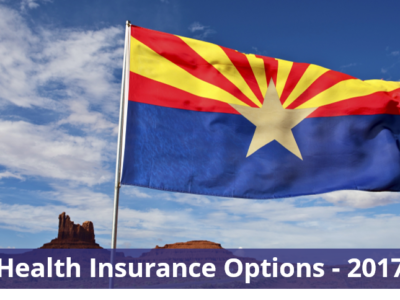
*Updated 11.10.18. We will continue to update this page with the latest plan information. Stay tuned!
North Carolinians shopping for health insurance for 2020 have two things to look forward to this open enrollment period: a new carrier option and lower premiums. Two years after Aetna left the state, Ambetter is stepping in to offer a competitive plan in a select market. During the 2018 open enrollment period 520,000 people enrolled in the NC exchange, the fourth highest in the nation behind California, Florida, and Texas.
Last year’s enrollment was actually a 15% decrease from the peak enrollment North Carolina saw in 2016. Open enrollment runs from Nov 1 through Dec 15, 2108 for plans beginning Jan 1 2020.
What’s different this year?
Availability of short term plans that can last a year.These short term, limited duration plans (STLDs) come with more restrictions, such as limits on pre-existing conditions, and offer less coverage (i.e., goodbye well-visits and maternity coverage), but their lower price point can be attractive to those that are relatively healthy and looking for more affordability.
Premiums have stabilized. Premiums are predicted to drop 1.4% in North Carolina. According to CMS, the national average rate is dropping 1.5 percent across the country.
Individual mandate disappearing. Beginning in 2020, the Individual Mandate which fines Americans who skip out on health coverage will no longer be in effect. While some think this measure could send premium prices up as the markets adjust for an exodus of healthy young people, it might have less effect than people think.
QSEHRAs are becoming more popular. For small companies and startups that can’t afford traditional group plans, QSEHRAs (aka Qualified Small Employer Health Reimbursement Arrangements) offer a new way to reimburse for premiums and medical expenses tax-free. In addition to being reimbursed for plans and alleviating the financial burden of individuals buying their own health insurance, employees can choose their own plan that works best for them instead of fitting into a one-size-fits-all group plan! If you or your employer wants to learn more about this, we have a first-of-its-kind QSEHRA guide that explains everything you need to know! *Please note, if your employer sponsors a health reimbursement plan such as QSEHRA you will need to to purchase a health plan that meets Minimum Essential Coverage (MEC) to participate in the tax-free reimbursements.
What’s the same
Despite a lot of talk in Washington, the Affordable Care Act (also known as Obamacare) is still intact.
Doctor networks continue to stay small: An ongoing trend since the start of Obamacare, many plans will cover an increasingly smaller percentage of doctors in a given area. That leaves the consumer with fewer choices and a greater chance of having to go out of network to get the care they need. This is a strategy used by carriers to keep costs down, but it leaves consumers financially vulnerable for shouldering those scary and sky-high out-of-network costs.
Even if your doctor is on your plan this year, it’s worth double checking for this coming year, since things might have changed.
Our doctor search tool on our website is a simple way to do that!
Subsidies: Federal subsidies are expected to be available to those who qualify.
Outages: Just like last year, there are 60 hours of scheduled downtime for scheduled maintenance that could get in the way of individuals researching and signing up for plans. Take note that from 12 a.m. to 12 p.m. every Sunday, except for the last Sunday of open enrollment, you can’t access healthcare.gov.
The full lineup: individual health insurance in North Carolina 2020
Three carriers will be providing coverage for individuals through the marketplace. Only one county in the state, Wake, will have the ability to choose from all three carriers.
- Ambetter Essential Care (Bronze)-low premiums, higher out of pocket costs
- Ambetter Balanced Care (Silver)-best if eligible for government assistance. Balanced premiums an out of pocket costs
- Ambetter Secure Care (Gold)-higher premiums, lower monthly costs
New to the state for 2020, Ambetter (a subsidy of Centene) will be offering coverage in Durham and Wake Counties. Duke Health is expected to be an in network provider for Ambetter.
Centene currently covers more than 1.5 million people in 16 states through the federal marketplace.
- Blue Advantage HMO (less expensive premium) and Blue Advantage Plus HMO (more expensive premium)
- Bronze-low premiums, high out of pocket. Plan pays 60%, you pay 40%
- Silver-high premiums, low out of pocket compared to Bronze plans. Plan pays 70%, you 30%
- Gold-highest premiums, lower out of pocket than silver plans. Plan pays 80%, you 20%
Blue Cross Blue Shield is the largest provider to North Carolina, providing coverage statewide. For 2020 the avearge BCBS premium will decrease 4.1%; the first premium reduction in 25 years since they entered the state. Blue Cross is changing their plan offerings for 2020 and bringing a new ACA plan to the market called Blue Values with UNC Health Alliance. The plan has a large network of providers; unfortunately Duke Health and Wake Med are not network providers which means you will pay high out of network costs if you use one of those doctors.
Blue Cross Blue Shield consumers will also see changes to out-of-network benefits in 2020:
- Your out-of-network deductible will be five times (5x) the in-network deductible. (Currently, it’s 4x the in-network deductible.) This is the amount you pay for covered medical costs from out-of-network providers before your health insurance begins to pay. Always check that a doctor or facility is in-network before making an appointment.
- Your out-of-network out-of-pocket limit will be “No Maximum.” (Currently, it’s 4x the in-network out-of-pocket limit.) This means there is no limit to the amount you’ll pay when visiting doctors or facilities that aren’t in the Blue Value with UNC Health Alliance network.
- Bronze: low price tag- plan pays 60% and you pay 40%
- Silver: medium price tag- plan pays 70% and you pay 30%
- Gold: high price tag- plan pays 80% and you pay 20%
- Platinum: highest price tag- plan pays 90% and you pay 10%
Cigna will be continuing it’s coverage in the 5 counties in the Raleigh Durham area: Wake, Johnston, Orange, Chatham and Nash
Affordable Alternatives You Should Know About
An increasing number of our customers are opting for alternatives to traditional insurance. Here’s a couple of our top picks. They might not be for everyone, but they are worth checking out and comparing to major medical plans on our platform.
Short term plans: Pivot and United Health One provide short term medical insurance solutions until a qualified major medical health plan is chosen, helping reduce your financial risk. The ACA rollback on short term plans allows these plans to be for longer durations up to 364 days depending on state allowances.
Faith-based: Faith-based Medi-Share has a statewide PPO network available in 2020 managed by PHCS (Private Healthcare Systems, now owned by Multiplan). It’s smaller than some of the PPO networks in the past, but it does provide flexibility to see your doctors and will cover out-of-network expenses as long as it meets Medi-Share’s faith-based guidelines. Medi-Share won’t be for everyone, but is a worthy option to consider if it fits your personal convictions and lifestyle. Make sure to check out our Medi-Share reviewand compare it to other major medical plans on our website before you enroll.
An easier way to shop for plans this year!
Take Command Health is excited to announce that they will be expanding their services to North Carolina for the first time during the 2020 Open Enrollment Season. With a mission to empower consumers to shop smarter when it comes to health insurance, Take Command Health’s online tool is free and easy to use. Consumers can search for on-exchange and off-exchange plans including faith based plans and short term plans. Plans will be loaded in the database and available to view beginning Nov 1, 2018. From the Take Command Health site customers can chat with licensed insurance professionals, enroll in a plan, and apply for tax credits all on one site.
Jack Hooper, CEO and Founder of Take Command Health, is quite excited to be in North Carolina this year.
“Shopping is going to be important for North Carolina this year. Even if your plan is not increasing much, often the underlying doctor networks and prescription formularies are, as we see with the change in Blue Cross-it’s important to make sure your needs are still being met by your health plan.”
“We are excited to bring our doctor and prescription search features to North Carolinians shopping for plans.”
In addition to the individual enrollments, Take Command Health also helps small business owners set up specialized small business HRA’s known as QSEHRA. “A new alternative for small employers in North Carolina is to look at the new QSEHRA. This allows North Carolina businesses to reimburse employees tax-free for individual insurance plans and medical expenses. We find this leads to a much more optimized solution than trying to fit a one-size-fits-all group plan onto a small group, ” said Hooper.
Ready to get started finding the best plan for your family or small business? Chat with our team on the website today!















